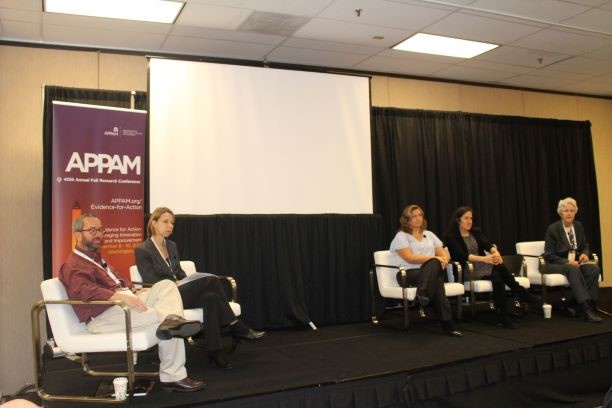Author: Alex Osei-Kojo, PhD Student, School of Public Affairs University of Colorado Denver
This session focused on the role of values in educational policymaking, basing the discussion on a recent publication entitled “Educational Goods: Values, Evidence and Decision-making.” The book was authored by renowned educational policy scholars and philosophers and was published by the University of Chicago Press in 2018. The Chairperson introduced the session by explaining the key theme of the book saying that “policies should be driven by values and informed by evidence. The benefit of adopting this approach to educational policymaking, according to her, was that “it forces us to think about what values we care about and to achieve personal fulfillment.”
The first speaker was Susanna Loeb from Stanford University. The presentation focused on three distributive values to guide the distribution of educational goods, namely equality, adequacy and benefiting the less-advantaged. According to Susanna’s presentation: Equality means giving people the same opportunity to succeed. Adequacy means that goods are available in the amount that is necessary for people to live decent lives. Benefiting the less-advantaged means moving people up the ladder of success from the bottom. She concluded by saying that these factors are useful because they serve as a framework about what factors to consider in making decisions about educational policy.
The second speaker was Rebecca Jacobsen from Michigan State University. This presentation explored the strategies to make schools more accountable. After examining the factors that have contributed to the inadequate focus on educational goods, such as slashing NAEP’s budget by half in 1974, she proposed the following measures to make schools more accountable: First, there is the need view politics as a means to discuss solutions to the problem of values. Second, we must focus on devising new ways to measure the things about which we care. Third, technical precision and competence should not be the sole of focus of education.
The third speaker, Carolyn J. Heinrich, from the Vanderbilt University, presented on “Broadening our thinking about ‘educational goods’ and their distribution.” Her main argument was that educational success is not limited to “cognitive achievement.” Rather, it encompasses the totality of “valued outcomes and their distribution” even though these may not be measurable.
The last speaker, Jay P. Greene, from the University of Arkansas, presented an alternative framework to thinking about educational goods and their distribution. He argued that while the framework proposed by the book was useful, it was “insolvably complex,” because it focuses on a plethora of competing factors that are difficult to manage. He proposed a pluralistic/political approach, which emphasizes decentralized educational decision-making. He concluded by saying that we should “think of education as a political act and not as a scientific act.”
Three broad policy implications emerged from this session. First, values should be incorporated into evidence-based decision-making. Second, educational decision-making should be regarded as a political act, much as it is scientific act. Third, we need to think broadly about educational success and achievement.

Pictured: Panelists for Values in Education: Implications for Policy and Practice, #2018APPAM